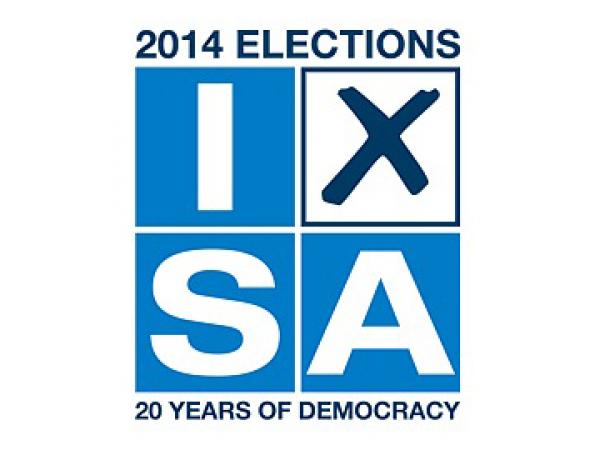The voting is over “” Forward to new battles

The voting is over, the counting complete — and there have been no major surprises. But for many it will be recriminations rather than celebrations that will follow what will almost certainly be regarded as a watershed election, signalling changes to come.
Many pats on the back over coming weeks may contain daggers of deceit and there will almost certainly be a hollow ring to some of the claimed improvements and successes by various parties and groups. This was, after all, the first election since the transition from apartheid that has seen serious fissures opening up within the governing alliance, with elements of the trade union movement leading the way.
But much of the acrimony in the trade union movement was subdued in the run-up to last Wednesday. There was not even an outcry when recently reinstated Cosatu general secretary, Zwelinzima Vavi, deviated from his mandated May Day script. Instead he delivered a carefully crafted series of dissident barbs at the very alliance he was instructed by the executive to support.
This was, in fact, the first major indication that the hastily papered-over differences within Cosatu and the alliance as a whole were set soon to tear apart. And although the National Union of Metalworkers (Numsa) is making most of the running, it is not alone in taking a stand against the long-established, ANC-led, tripartite alliance that incorporates the SA Communist Party and Cosatu.
The eight other Cosatu affiliated unions that last year backed the Numsa call for a special national congress remain in support. But even the usually solidly pro-establishment SA Democratic Teachers’ Union (Sadtu) is clearly split, especially following the suspension of union president Thobile Ntola after he came out in support of Vavi.
There were similar splits in Sadtu in 2008 when former Sadtu and Cosatu president, Willie Madisha was expelled. However, unlike Vavi and Ntola who continue to support the unity of Cosatu, Madisha allied himself with the then newly formed Congress of the People and tried to set up an alternative trade union federation.
Elements within the Cosatu executive clearly hoped that Vavi and Ntola would make a similar choice and that Numsa too, would break away. But they have stayed put, confident that they have enough support at rank and file level to unseat the current Cosatu executive at a national congress.
Although members of the executive give private assurances that such a congress will not be called, the courts may force their hand since this refusal clearly goes against the Cosatu constitution. The courts are to be asked, apparently as a matter of urgency, to rule on this matter.
At the same time, the Cosatu executive this week lost two of the most vociferous opponents of Vavi and of the Numsa position. National Union of Mineworkers president, Senzeni Zokwana and National Health Education and Allied Workers Union general secretary, Fikile Majola are now on their way to parliament as ANC MPs.
This move into parliament by senior union leaders following every election has strengthened the argument among Cosatu dissidents that the federation is merely being used as a stepping stone to parliamentary seats and into business; that, as Numsa has maintained, Cosatu is “becoming a labour desk of the ANC”.
However, Numsa’s withdrawal of support for the alliance may not be shared to the same degree by members of other unions, including those in the eight that support the special congress call. Most of the opposition within Cosatu seems based on criticism of the current ANC leadership and, in particular, of President Jacob Zuma.
But most — if not all — Cosatu unions will probably attend the “socialist conferences” that Numsa is pledged to convene this year. Such a call would be in line with a decision taken by the federation in 1994 and never acted on.
Independent unions and those affiliated to the National Council of Trade Unions should also attend, along with a range of community groups and the often fractious fragments of the radical Left. They could be joined by supporters of the Sidikiwe-Vukani campaign that lays claim to having opened up much of the recent debate about the electoral system and the political future.
They will meet, aware that a survey last year of Cosatu shop stewards revealed a majority preference for a labour party. So the political landscape and the shape of the trade union movement seems about to undergo considerable change. And this is likely to increase the ferocity of the coming electoral battles.

This article is licensed under a Creative Commons Attribution-NoDerivatives 4.0 International License.


